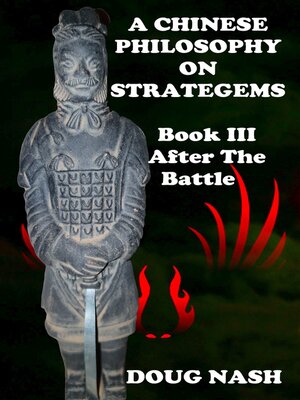
Sign up to save your library
With an OverDrive account, you can save your favorite libraries for at-a-glance information about availability. Find out more about OverDrive accounts.
Find this title in Libby, the library reading app by OverDrive.



Search for a digital library with this title
Title found at these libraries:
| Loading... |
Having dealt with issues leading up, during and after a battle, now Frontinus turns his attention to the siege of cities. First he deals with effecting a successful siege and then offers suggestions for those being besieged.
In chapter three of the Art of War, Sun Tzu is clear and decisive in his thoughts with these words, the worst policy of all is to besiege walled cities. He warns that the cost in time, money and men is unwise and very high. Frontinus, in his examples, adds reality to this argument of Sun Tzu.
Could a Chinese General truly know the mind of a Roman General? Julius Frontinus penned the Strategemata and Sun Tzu inked the Art of War. By merging the two, the answer is revealed. After two millennia, we can find their words and messages on a single page to know the answer.
Is Sun Tzu's idea "that what enables the wise sovereign and the good general to strike and conquer, and achieve things beyond the reach of ordinary men is foreknowledge" echoed in the examples of Frontinus? If so, can we benefit from such an idea?
Alternatively, would Frontinus have benefited from reading the Art of War? If so, how would this understanding have altered his book on warfare at his time as he fought it and knew it?
Does language, geography, culture or nation states change the fundamentals of how war is fought and battles won or lost? The question of who was the greater general is irrelevant. If is knowledge we seek here, not fame or emoluments.
Let the words of Confucius prepare your mind. By three methods we may learn wisdom: First, by reflection, which is noblest; second, by imitation, which is easiest; and third by experience, which is the bitterest.
There will be a time when you may need to take heed of Plato when he advises: Never discourage anyone who continually makes progress, no matter how slow. Take your time and ponder well. There is much to digest. Remember we are contemplating the words of two great generals.
This is not a quick read and move on kind of book. It is aimed to be a doorway to a deeper understanding regarding conflict. As your understanding deepens, the benefits will flow.
If you are interested in war, warfare, strategy, tactics, leadership, character and like subjects this A Chinese Philosophy on Strategems Book III After The Battle is a must for your library.






